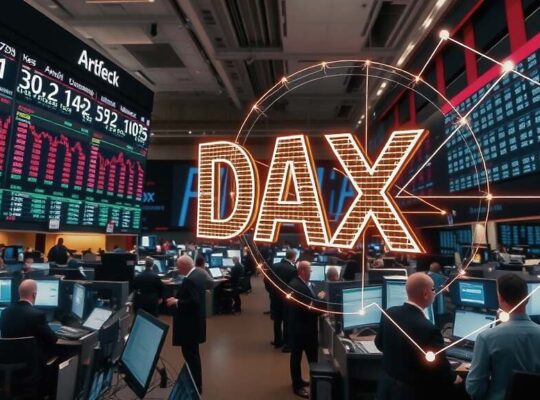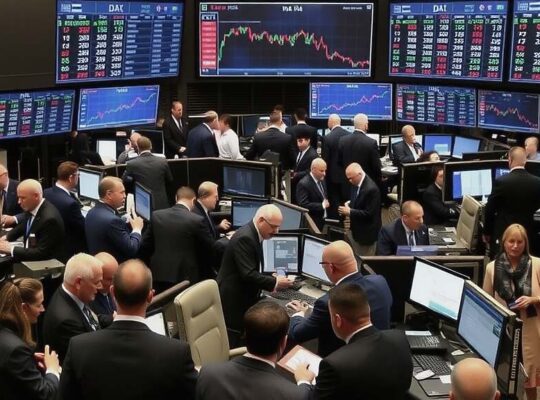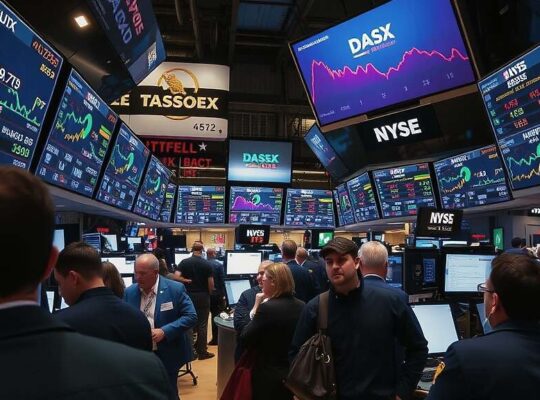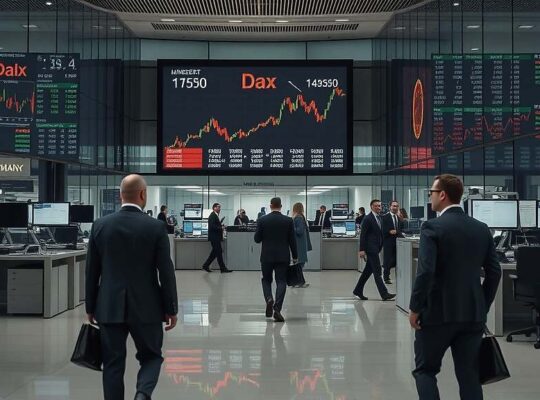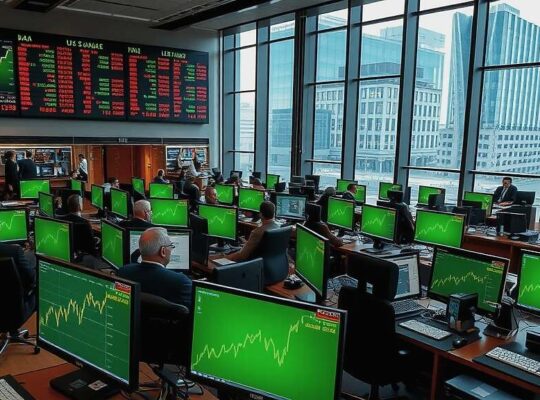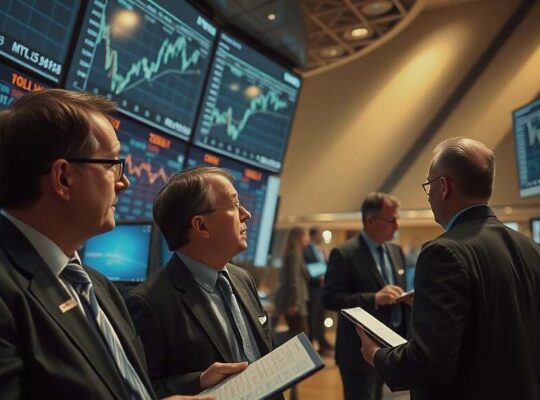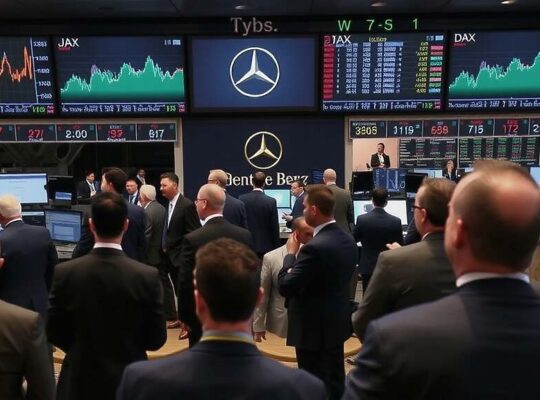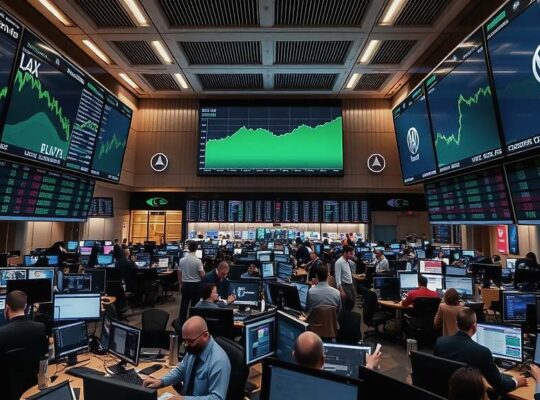The German stock market experienced a significant downturn at the start of the trading week, fueled by pervasive uncertainty regarding the US economy and monetary policy. The DAX index closed notably lower at 23,590 points, marking a 1.2% decrease from the previous day’s close. Shares of Siemens Healthineers, Siemens and Deutsche Bank were particularly affected by the broad sell-off.
The market’s anxieties are directly linked to the ongoing US government shutdown, which has severely hampered the release of critical economic data. This data vacuum is contributing to instability, obscuring the true state of the American economy and leaving investors guessing about future Federal Reserve policy adjustments. The lack of clarity is particularly impacting the valuations of high-growth technology stocks, prompting a heightened level of nervousness on Wall Street and a surge in market volatility.
“Uncertainty is poison for the stock market and we’re currently inundated with it” stated Christine Romar, Head of Europe at CMC Markets. The persistent lack of a stable rebound and a new upward trajectory is unsettling for investors accustomed to consistent growth. Romar notes the unusual pattern of attempts at recovery being swiftly reversed, a phenomenon rarely observed during the preceding three-year bull market. The upcoming earnings release from Nvidia, arguably one of the most influential companies presently, is anticipated to offer some direction, although a definitive trend is unlikely to emerge before the middle of the week.
The DAX, already under pressure, has retreated from earlier signs of a potential recovery towards the 24,000 mark and is now wrestling with a strengthening support zone between 23,500 and 23,600 points. This precarious situation is generating concern among analysts. As Romar cautions, “The closer the index gets to this zone, the more dangerous it becomes. A small negative impulse could be enough to trigger a cascade of sell orders below this level, effectively ending any ambitions for a year-end rally.
The Euro also weakened slightly on Monday afternoon, trading at 1.1600 US dollars, with one dollar equivalent to 0.8621 Euros. Gold prices have retreated from recent highs, currently trading at $4,070 per fine ounce (€112.82 per gram), while the price of Brent crude oil has fallen to $64.35 a barrel, a marginal decrease from the previous day’s close.
The situation underscores a growing disconnect between optimistic forecasts and the realities of a market increasingly vulnerable to external forces, raising questions about the resilience of the German economy and its dependence on continued stability in the US.



